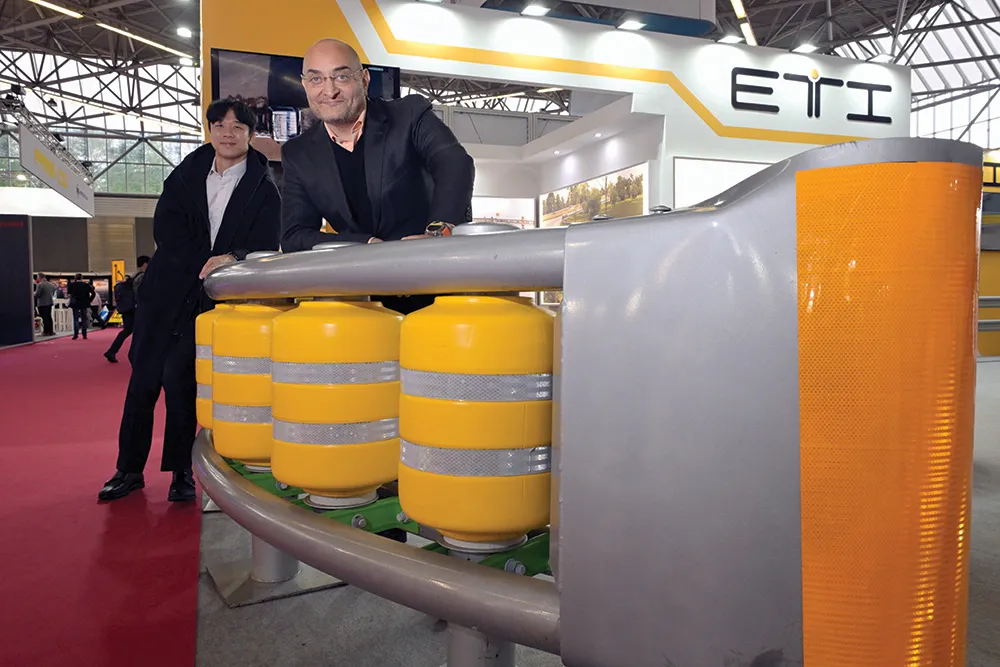A UK university student researcher has made a breakthrough by designing and constructing a new system which ‘harvests’ the energy generated by a vehicle’s shock absorbers and feeds it back into batteries or electrical systems such as air conditioning.
Ruichen Wang from the University of Huddersfield carried out the project to obtain his doctorate at the University and has published his findings. The article, Modelling, Testing and Analysis of a Regenerative Hydraulic Shock System, provides a summary of
October 31, 2016
Read time: 2 mins
A UK university student researcher has made a breakthrough by designing and constructing a new system which ‘harvests’ the energy generated by a vehicle’s shock absorbers and feeds it back into batteries or electrical systems such as air conditioning.
Ruichen Wang from the University of Huddersfield carried out the project to obtain his doctorate at the University and has published his findings. The article, Modelling, Testing and Analysis of a Regenerative Hydraulic Shock System, provides a summary of current progress in the field of vehicle energy harvesting and a detailed account of the theory and the practical development of his device, designed for installation in a heavy good vehicle.
After working on the mathematics, computational analysis and design of his device, Dr Wang constructed his full-size, ready-to-test prototype, which his supervisor Professor Ball says is a realisable application for energy recovery from a typical road vehicle.
Harvested energy can be used for any auxiliary purpose in a vehicle, said Professor Ball, and in hybrids it could recharge the electric motor.
The next stage is to work with an industrial partner to install and test Dr Wang’s system in a road-going vehicle. But the technology has a wide application and there is every possibility that it could be adapted for rail vehicles, especially as Dr Wang has taken up a full-time research post at the University of Huddersfield’s Institute of Railway Research (IRR).
According to Dr Paul Allen, who leads the IRR’s Centre for Innovation in Rail, the IRR is now exploring how energy harvesting and modelling techniques can be applied to developing low-cost self-health monitoring dampers for railway vehicles, a project which already has two industrial partners.
Ruichen Wang from the University of Huddersfield carried out the project to obtain his doctorate at the University and has published his findings. The article, Modelling, Testing and Analysis of a Regenerative Hydraulic Shock System, provides a summary of current progress in the field of vehicle energy harvesting and a detailed account of the theory and the practical development of his device, designed for installation in a heavy good vehicle.
After working on the mathematics, computational analysis and design of his device, Dr Wang constructed his full-size, ready-to-test prototype, which his supervisor Professor Ball says is a realisable application for energy recovery from a typical road vehicle.
Harvested energy can be used for any auxiliary purpose in a vehicle, said Professor Ball, and in hybrids it could recharge the electric motor.
The next stage is to work with an industrial partner to install and test Dr Wang’s system in a road-going vehicle. But the technology has a wide application and there is every possibility that it could be adapted for rail vehicles, especially as Dr Wang has taken up a full-time research post at the University of Huddersfield’s Institute of Railway Research (IRR).
According to Dr Paul Allen, who leads the IRR’s Centre for Innovation in Rail, the IRR is now exploring how energy harvesting and modelling techniques can be applied to developing low-cost self-health monitoring dampers for railway vehicles, a project which already has two industrial partners.








